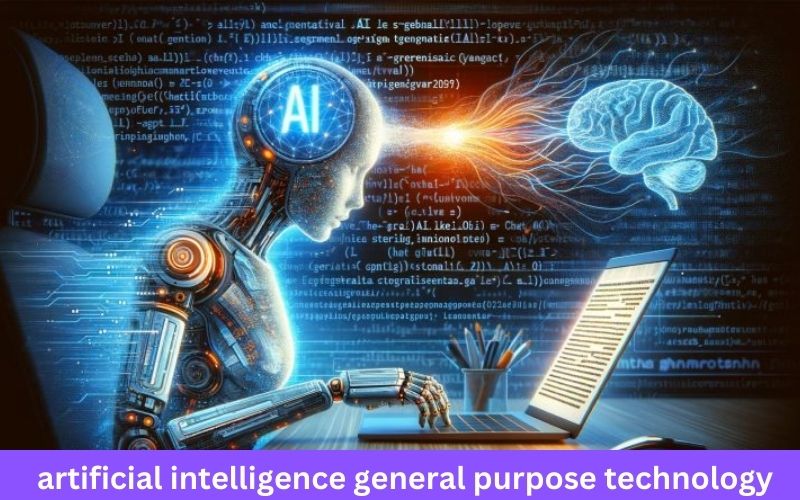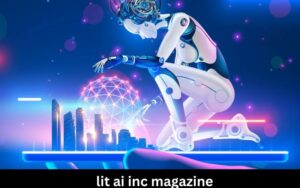Artificial Intelligence: The Next General-Purpose Technology
Artificial intelligence (AI) is no longer a futuristic concept; it’s a reality reshaping our world. In recent years, AI has rapidly evolved, demonstrating immense potential across various domains. From healthcare to finance, transportation to manufacturing, AI is proving to be a versatile and powerful tool. However, what truly sets AI apart is its potential to become a general-purpose technology (GPT).
A GPT is a technology that can be applied to a wide range of industries and products, fundamentally altering the way we live, work, and interact. Throughout history, there have been a few key GPTs, including the steam engine, electricity, and the internal combustion engine. These technologies revolutionized society by enabling new innovations, driving economic growth, and creating new industries.
Why AI is the Next GPT
- Versatility: AI’s ability to learn, adapt, and perform tasks across various domains makes it exceptionally versatile. From natural language processing to computer vision, AI can be applied to a wide range of applications. This versatility is a hallmark of GPTs, as they can be integrated into numerous industries and products.
- Scalability: AI can be scaled to handle massive amounts of data and complex problems. This scalability is essential for a GPT, as it allows for widespread adoption and integration into various systems. Unlike previous GPTs, AI can be easily adapted to different contexts and requirements.
- Continuous Improvement: AI algorithms are constantly evolving and improving. As more data becomes available and research progresses, AI models become more accurate, efficient, and capable. This continuous improvement is a key characteristic of GPTs, as they can adapt to changing circumstances and remain relevant over time.
- Economic Impact: AI has the potential to drive significant economic growth. By automating tasks, improving efficiency, and creating new products and services, AI can boost productivity and innovation. This economic impact is a hallmark of GPTs, as they can reshape entire industries and create new opportunities.
Applications of AI as a GPT
- Healthcare: AI is transforming healthcare by improving diagnosis, treatment, and drug discovery. AI-powered systems can analyze medical images, predict disease outcomes, and develop personalized treatment plans.
- Finance: AI is revolutionizing the financial industry by automating processes, detecting fraud, and providing personalized financial advice. AI-powered algorithms can analyze vast amounts of data to identify investment opportunities and manage risk.
- 1. www.pcolib.com
www.pcolib.com - Manufacturing: AI is enhancing manufacturing efficiency by automating tasks, optimizing production processes, and improving quality control. AI-powered robots can perform tasks with precision and speed, leading to increased productivity and reduced costs.
- Transportation: AI is driving innovation in transportation by enabling autonomous vehicles, optimizing traffic flow, and improving logistics. AI-powered systems can analyze real-time data to make intelligent decisions and improve safety and efficiency.
- Democratization of Technology:
- Accessibility: AI is making technology more accessible to individuals and businesses of all sizes. With the development of user-friendly AI tools and platforms, even those without extensive technical expertise can leverage the power of AI.
- Empowerment: AI can empower individuals and organizations by automating routine tasks, providing valuable insights, and enabling new possibilities. By removing barriers to innovation, AI can democratize access to technology and create a more equitable playing field.
- Enhanced Creativity and Innovation:
- Inspiration: AI can serve as a source of inspiration for creative endeavors. By generating new ideas, analyzing patterns, and providing feedback, AI can help artists, designers, and innovators push the boundaries of their work.
- Collaboration: AI can collaborate with humans to create novel and innovative solutions. By combining the strengths of human creativity and AI’s computational power, we can achieve breakthroughs that would be difficult or impossible to attain alone.
Challenges and Considerations
While AI holds immense promise as a GPT, there are also significant challenges to address. These include ethical concerns, job displacement, and the potential for misuse. It is crucial to develop responsible AI practices, mitigate risks, and ensure that AI benefits society as a whole.
Conclusion
Artificial intelligence is poised to become the next general-purpose technology, transforming industries and driving economic growth. Its versatility, scalability, continuous improvement, and economic impact make it a powerful force for innovation. However, it is essential to address the challenges and considerations associated with AI to ensure its responsible and beneficial development. By harnessing the potential of AI, we can create a future where technology serves humanity and improves our lives.




